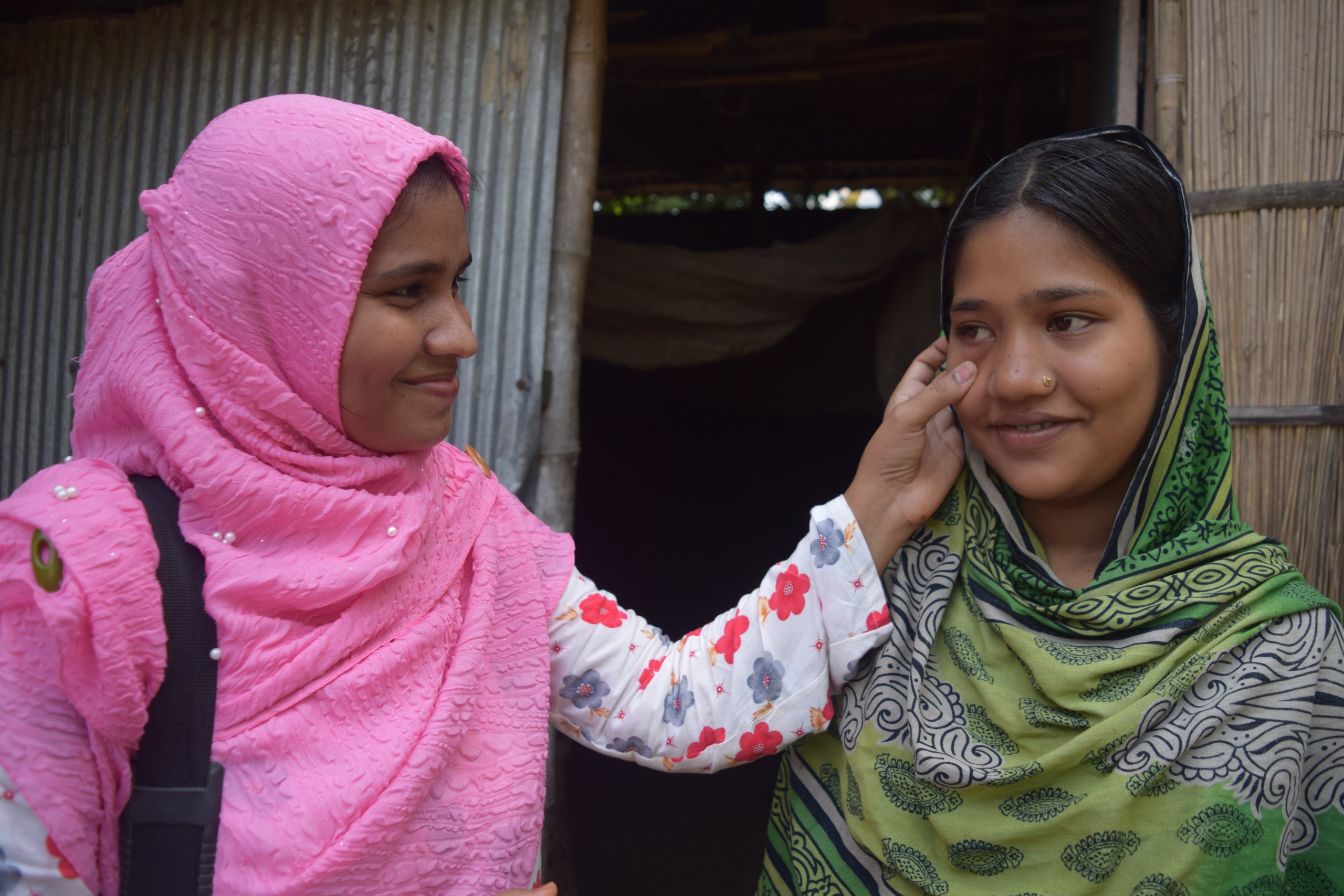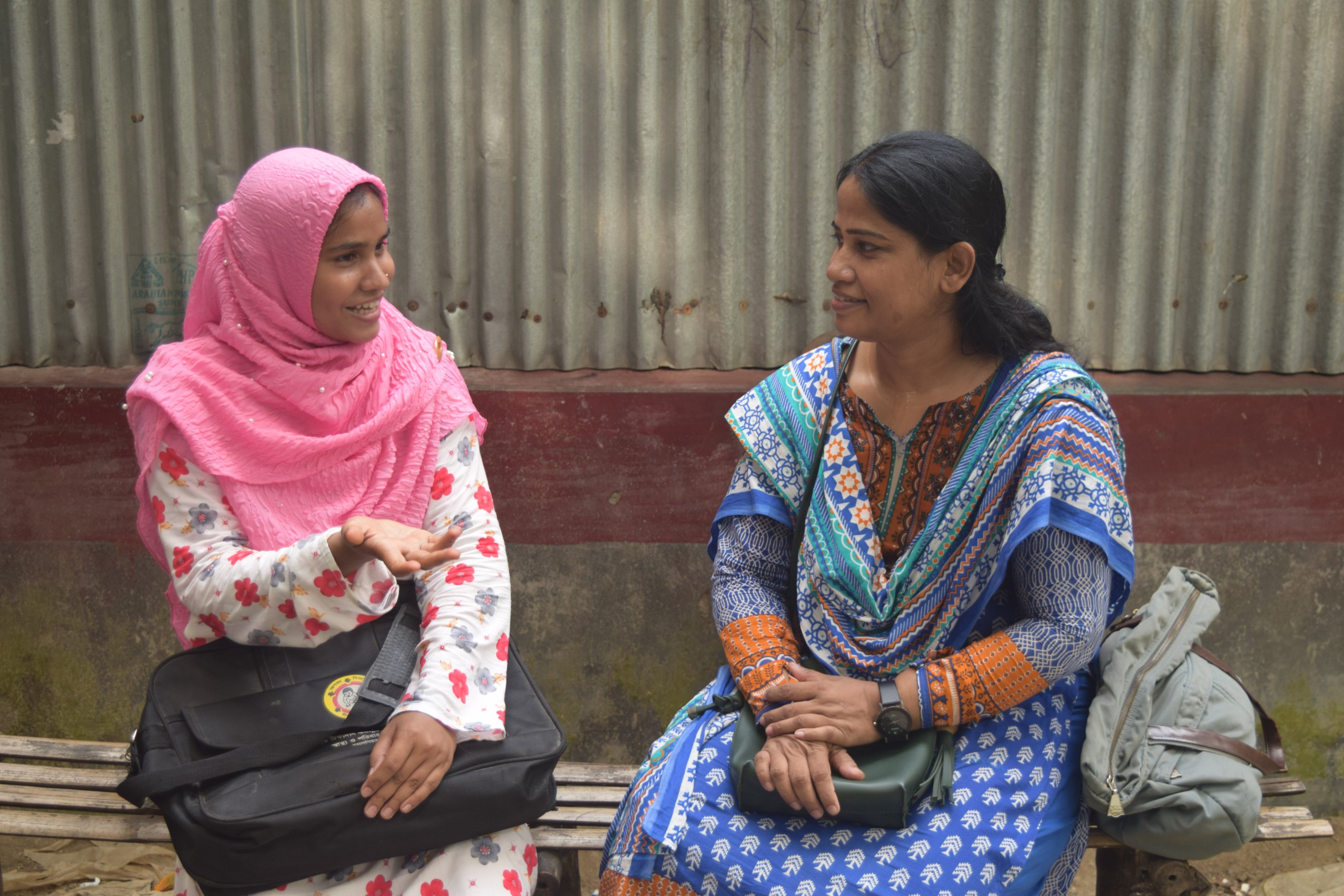Field Story
Ten must see global nutrition stories from 2023
December 18, 2023
Mousumi’s Story: Health Assistant and Advocate for Maternal Nutrition in Bangladesh
Meet Mousumi Akhtar, a 25 year-old health assistant who has made it her personal mandate to ensure women and adolescent girls in Bangladesh be provided with the best possible healthcare throughout their pregnancy.
Posted on January 23, 2018


With support from the Government of Canada, Nutrition International trains community health workers in Bangladesh as part of the Right Start Initiative. Right Start Bangladesh aims to reach 2 million women of reproductive age and adolescent girls across the country with rice fortified with iron and folic acid, as well as 600,000 pregnant women across 10 districts and two city corporations with improved nutrition services and antenatal care by 2020.
Wearing a pink headscarf and her heart on her sleeve, 25 year-old health assistant Mousumi Akhtar walks into Bonogram village, Jamalpur district, ready to take on yet another day of helping mothers in her community overcome anaemia and feel confident of their health status throughout their pregnancy.
Mousumi is among the 6,000 Bangladeshi community health workers on the Government’s health services team who are receiving training from Nutrition International to provide healthcare and counsel pregnant women, mothers and other community members on adequate maternal and neonatal health behaviours and nutrition.
Although the country has achieved considerable progress in improving health and nutrition indicators, the burden of undernutrition among women of reproductive age and adolescent girls remains significant. Around 40% of women of reproductive age, including adolescent girls, have anaemia, which can impact their physical well-being, performance at work or school and increase the possibility of complications during pregnancy. Moreover, adolescent mothers are more susceptible to anaemia. Once notorious for under age marriages, Jamalpur district, where Mousumi works, is no stranger to teenage pregnancy.
Mousumi has made it her personal mandate to work tirelessly to ensure each and every mother in this village, particularly adolescent girls, be provided with the best possible healthcare.
Encountering anaemic mothers on a daily basis, one of her main roles is to provide and educate mothers on iron-folic acid supplementation, a public intervention known to reduce the burden of anaemia and make pregnancies safer.
When we met her, Mousumi was working with a young woman named Shayla, who was 18 years old and eight months pregnant with her first child. She had given Shayla IFA tablets and quickly noticed significant improvement in her haemoglobin levels. Asked if she felt any side effects of IFA tablets, Shayla said, “I did not have any problem as Mousumi asked me to have a pill only after a meal.”
But Mousumi’s role as a health worker does not stop here – she is also responsible for:
❖ assisting with childhood diarrhoea treatments such as zinc and ORS;
❖ promoting vaccinations;
❖ ensuring pregnant women receive four antenatal checks;
❖ providing post-natal care services;
❖ screening for Tuberculosis cases, and
❖ organizing community counselling sessions, known as `Uthan Boithak’, to disseminate health and nutrition messages.
Mousumi works closely with Nutrition International’s District Coordinator Mahfuza Begum Ruma, who monitors, supervises and educates community health workers in the region. Ruma is continuously impressed with the amount of effort and commitment shown by health workers such as Mousumi.
“A majority of the community level health workers in this district are very committed towards their work. I have seen them set aside personal priorities to focus on the welfare of their communities. It is an absolute joy for me to work with them and see them deliver high quality health services,” she said.


Mousumi also relies on Ruma to help her face certain superstitious beliefs in the rural populations where she works that affect the implementation of maternal and neonatal health services.
For instance, a common fear amongst mothers in the Jamalpur district is that ghosts will haunt them and harm their children if their newborns are taken out of their homes for their essential vaccinations in the first 40 days of life. To overcome this, Mousumi and Ruma repeatedly visit mothers to educate them on the benefits of these essential vaccines.
Thanks to the incredible commitment and dedication of community health workers such as Mousumi, who goes above and beyond in her day-to-day work, Nutrition International can reach more people with essential nutrition interventions, more effectively.
Learn more about the Right Start Initiative in Bangladesh through our fact sheet and infographic.